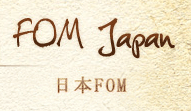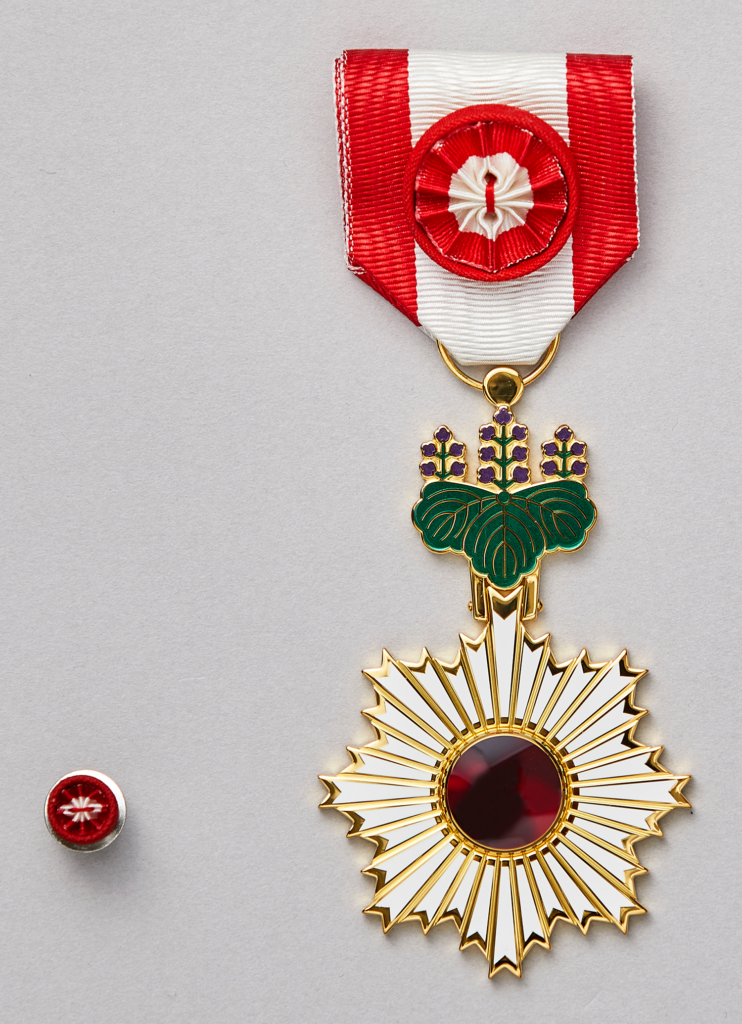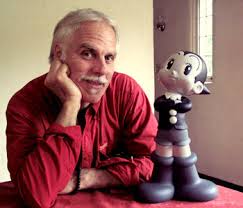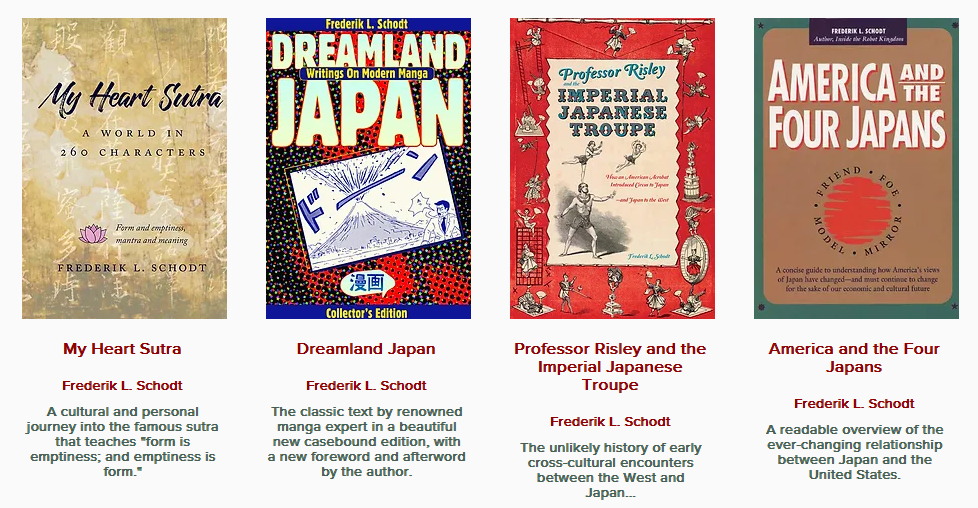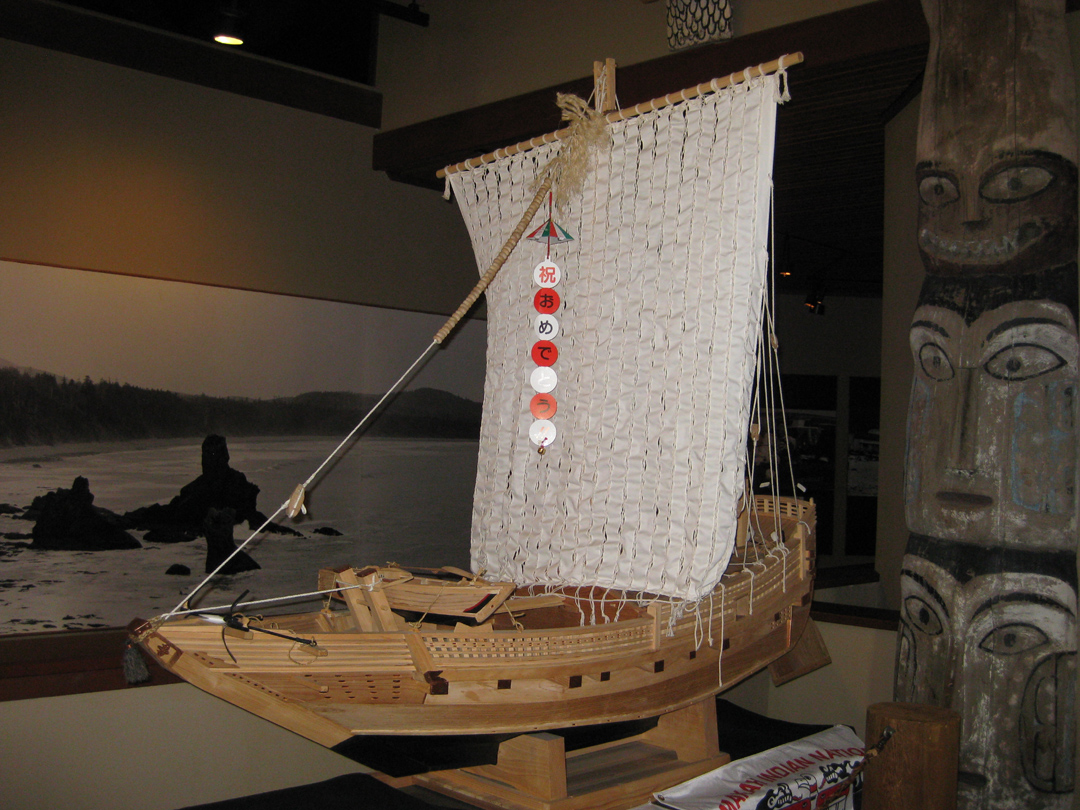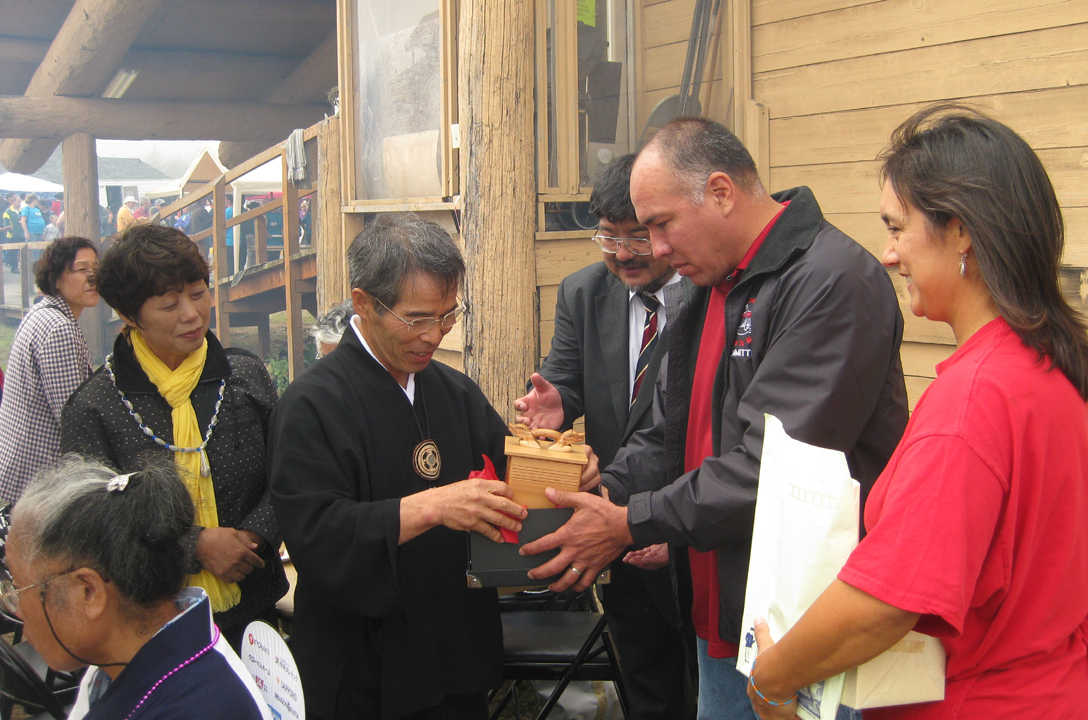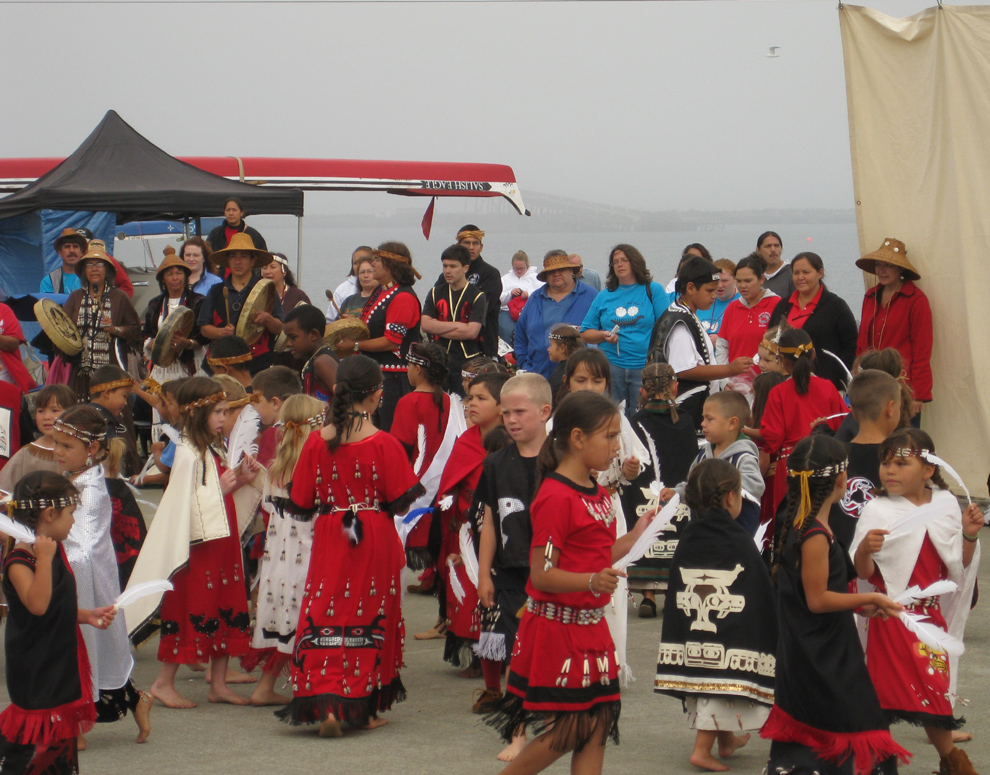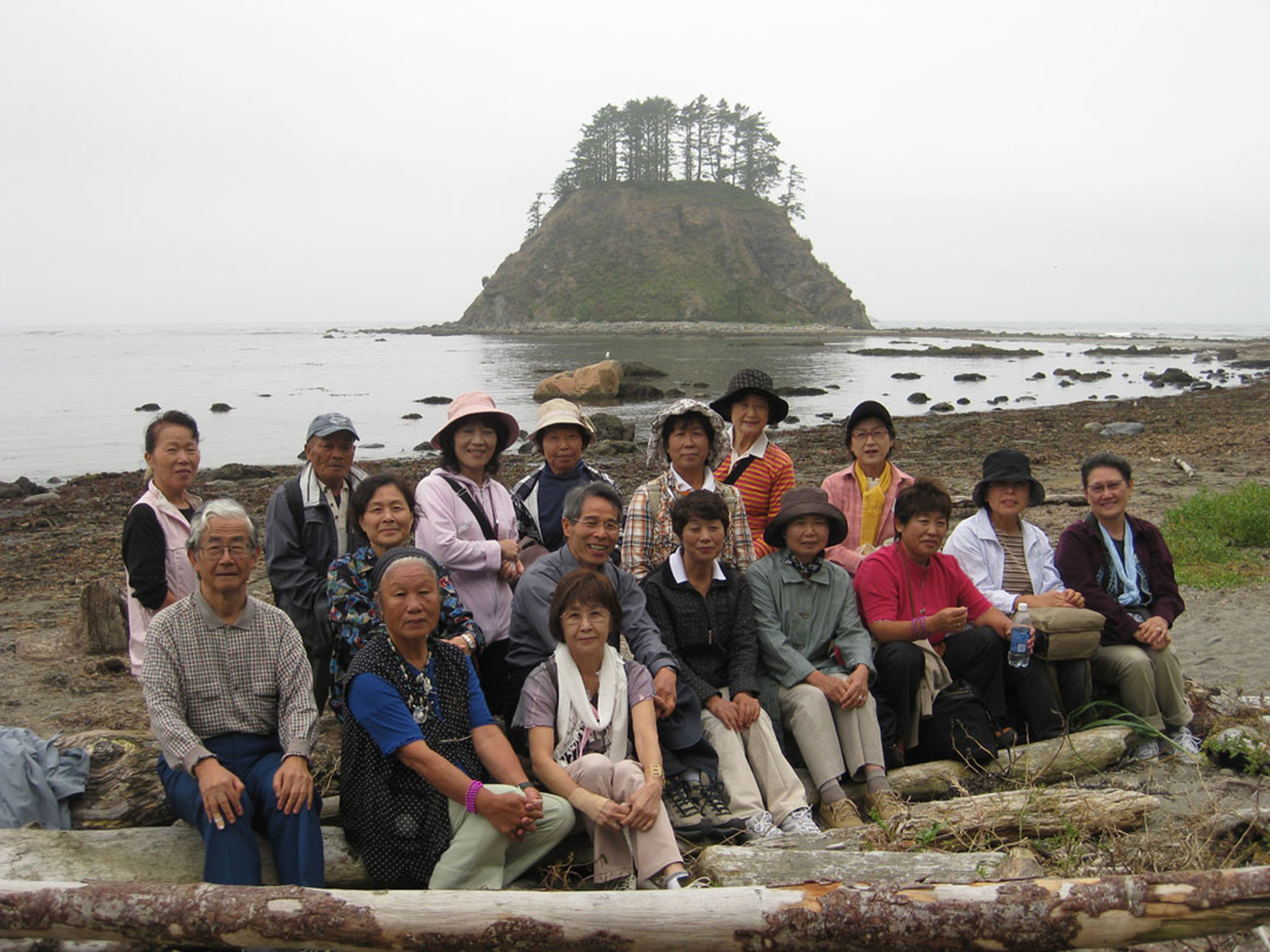Wednesday, February 8th, 2023
Long-time FOM members know Frederik L. Schodt as an author, translator, and conference interpreter

based in the San Francisco Bay area. Fred is also a long-time member of Friends of MacDonald – and we consider him one of our most precious “treasures”. While the following review by Don MacLaren is wonderful, I would have added the following info: first, that Fred Schodt was instrumental in introducing Tezuka’s most famous creation, “鉄腕 アトム/Tetsuwan Atomu” – Atom Boy – to the world, and second, Com. Perry’s negotiations with the Shogunate would (perhaps) not have been as smooth or successful if MacDonald’s student, Einosuke Moriyama, had not been so well-prepared (by MacDonald).

Fred has written widely on Japanese history, popular culture, and technology. His writings on manga, and his translations of them, helped trigger the current popularity of Japanese ‘comics’ in the English-speaking world, and in 2000 resulted in his being awarded the Special Category of the Asahi Shimbun’s prestigious Osamu Tezuka Culture Award. In the same year, his translation of Henry Yoshitaka Kiyama’s 1931 pioneering graphic novel, “The Four Immigrants Manga”, was selected as a finalist in Pen West USA translation award. In 2009, Fred was awarded by the Emperor of Japan, the Order of the Rising Sun, Gold Rays with Rosette, for his work in helping to promote Japan’s popular culture overseas. Also, in the same year he was awarded the “Special” category of the Ministry of Foreign Affair’s 3rd International Manga Award. Fred recently (last week!) received another great review of our favorite book…

“Native American in the Land of the Shogun: Ranald MacDonald and the Opening of Japan is a very important book about a fascinating man in Japanese history. I have read a lot about Japanese history, but I never came across Ranald MacDonald until I read this wonderful book by Frederik L. Schodt. I am surprised MacDonald’s story is not better known. I’m very happy, though, that someone with Schodt’s talents at research and storytelling wrote about it. MacDonald was a free spirit and a man of intense determination and courage. He went to Japan during the Edo Period, a time when foreigners were not allowed into Japan, except for a small number of Dutch who resided in a small island off Nagasaki. He could have been executed by the Japanese government. Japanese were not allowed to leave Japan at that time either. If they ventured to do so, they were at risk of being executed as well. Japan opened up to foreign trade after over 200 years of seclusion after Commodore Matthew Perry’s “Black Ships” arrived in Tokyo Bay in 1854. MacDonald arrived in Japan in 1848 and left the next year on a U.S. Navy ship that had been sent to Japan to rescue shipwrecked sailors. 15 other American sailors who had been shipwrecked and – like MacDonald – imprisoned in Japan, accompanied him. Most foreigners who reside in Japan today have taught English there, but MacDonald was the first foreigner in Japan to do so (correction… the Dutch interpreters ‘taught’ English – A.Y.) Sadly, the great impact MacDonald had on Japan and its relations with the outside world was largely forgotten. This book should change that and give him his rightful place in history.” ~Don MacLaren*
https://www.goodreads.com/review/show/5321706722?fbclid=IwAR1NvNwunMphAPPbCjD0L9izGJME0IatB7i81l6mkbD3oIazCYQmKudPopA Fred’s WEBSITES http://www.jai2.com | TALKS– http://www.jai2.com/ABE_Talks.htm | BIBLIOGRAPHY– http://www.jai2.com/Mybiblio.htm
*Don MacLaren’s articles have appeared in TIME, Newsweek (International), BusinessWeek, The Japan Times, Japan Today and other publications. Between 2008 and 2014 he made numerous trips to Japan, totaling over six months. Much of this time was spent writing his observations on Japan, as well as doing freelance translating and tutoring. MacLaren has divided his time between New York City, China and Japan since July 2014. He currently works as a teacher, writer and translator.
~~~~~~~~~~~~~~~~~~~~~~~~~~~~~~~~~~~~~~~~~~~~~~~~~~~~~~~~~~~~~






